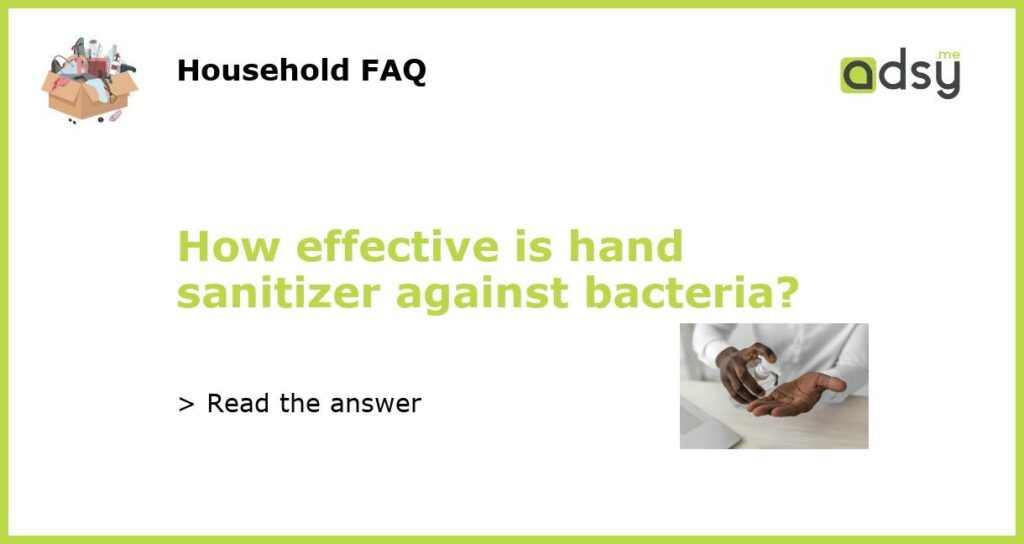What is hand sanitizer?
Hand sanitizer is a portable and convenient way to clean your hands when you don’t have access to soap and water. It is designed to kill bacteria and viruses that can lead to illness. Hand sanitizers come in a variety of forms including gels, foams, and sprays and are usually made with between 60% and 90% alcohol.
How does hand sanitizer work?
The alcohol in hand sanitizers works by breaking down the proteins and structures of bacteria and viruses, ultimately killing them. When you apply the sanitizer to your hands and rub them together, the friction helps to spread the sanitizer evenly across all surfaces, ensuring that all the bacteria and viruses are destroyed.
Is hand sanitizer effective against all bacteria?
Hand sanitizer is effective against most common bacteria and viruses. However, some bacteria and viruses are more resistant to alcohol-based sanitizers. For example, norovirus, which causes stomach flu, is not effectively eliminated by hand sanitizer. Additionally, sanitizer may not be as effective at removing dirt, grime, or other substances on your hands that can harbor bacteria and viruses.
When should you use hand sanitizer?
Hand sanitizer should be used when soap and water are not available. For example, after using public transportation, after touching door handles or other high touch surfaces in public places, and before eating. It is also recommended to use hand sanitizer before and after visiting someone who is sick, or if you yourself have a cold or the flu.
Is hand sanitizer effective against bacteria?
Overall, hand sanitizer is an effective way to kill bacteria and viruses and is a great option when soap and water are not available. However, it is important to note that it may not be effective against all bacteria and viruses and should not be used as a substitute for regular hand washing with soap and water.






